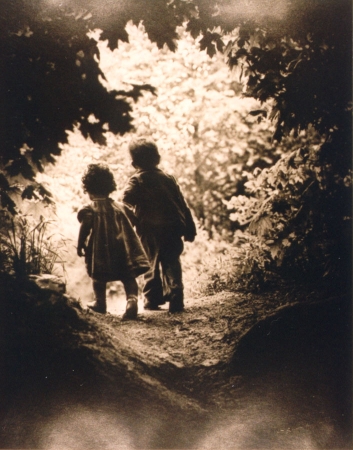|
Unexamined, the happy memories and all those great feelings from the yesterdays are the undertow, the backwash we rail against yet can't get enough of, which inexorably drags us back into the past. Examined, the happy memories and all those great feelings from the yesterdays are simply the happy memories and all those great feelings from the yesterdays.
That's more than just clever Zen wordplay. Unexamined happy memories and great feelings from the yesterdays (in other words, the good old days syndrome) not only get in the way of today and now being an open new source of happiness and greatness. It's worse than that. The undertow from the good old days syndrome skews away from looking to the future as a source of happiness and greatness. When that happens, there's nothing to look forward to. Literally, there's no future worth living into. When there's no future worth living into, life and all the tomorrows simply and unbearably just creep on in this petty pace (as William Shakespeare may have said).
When the happy memories and all those great feelings from the yesterdays are simply the happy memories and all those great feelings from the yesterdays, not only is today / now / the present freed up to originate new happy memories and great feelings, but - smarter yet - so is the future. In other words, when the happy memories and all those great feelings from the yesterdays are simply the happy memories and all those great feelings from the yesterdays, there's an open future worth living into. It's no longer only the past which is drawn from for happy memories and great feelings. When only the past is drawn from for happy memories and great feelings, that's what's called hankering.
I'd like to examine happy memories and great feelings - twice. Once, as they are in childhood. Then again, as they are in adulthood.
It's a paradox. Childhood's happy memories and great feelings aren't tempered by anything. There isn't anything in the way. We create them, and we know how to create them. But it's not devious knowing. It's not figuring out knowing. It's not clever knowing. The truth is children don't have adult knowing. Children have natural knowing. They have Zen mind ie beginner's mind.
